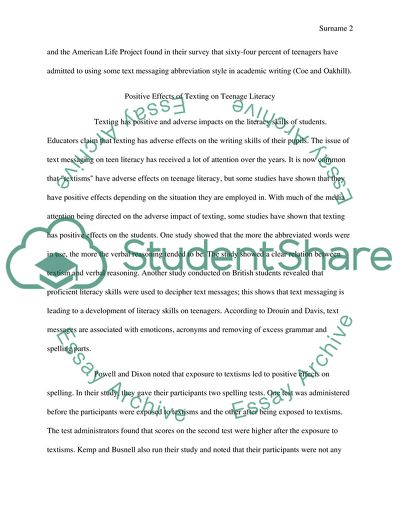Cite this document
(Effects of Text Messaging on Teen Literacy Essay Example | Topics and Well Written Essays - 1250 words, n.d.)
Effects of Text Messaging on Teen Literacy Essay Example | Topics and Well Written Essays - 1250 words. https://studentshare.org/social-science/1867486-text-messaging-affects-teen-literacy
Effects of Text Messaging on Teen Literacy Essay Example | Topics and Well Written Essays - 1250 words. https://studentshare.org/social-science/1867486-text-messaging-affects-teen-literacy
(Effects of Text Messaging on Teen Literacy Essay Example | Topics and Well Written Essays - 1250 Words)
Effects of Text Messaging on Teen Literacy Essay Example | Topics and Well Written Essays - 1250 Words. https://studentshare.org/social-science/1867486-text-messaging-affects-teen-literacy.
Effects of Text Messaging on Teen Literacy Essay Example | Topics and Well Written Essays - 1250 Words. https://studentshare.org/social-science/1867486-text-messaging-affects-teen-literacy.
“Effects of Text Messaging on Teen Literacy Essay Example | Topics and Well Written Essays - 1250 Words”. https://studentshare.org/social-science/1867486-text-messaging-affects-teen-literacy.


